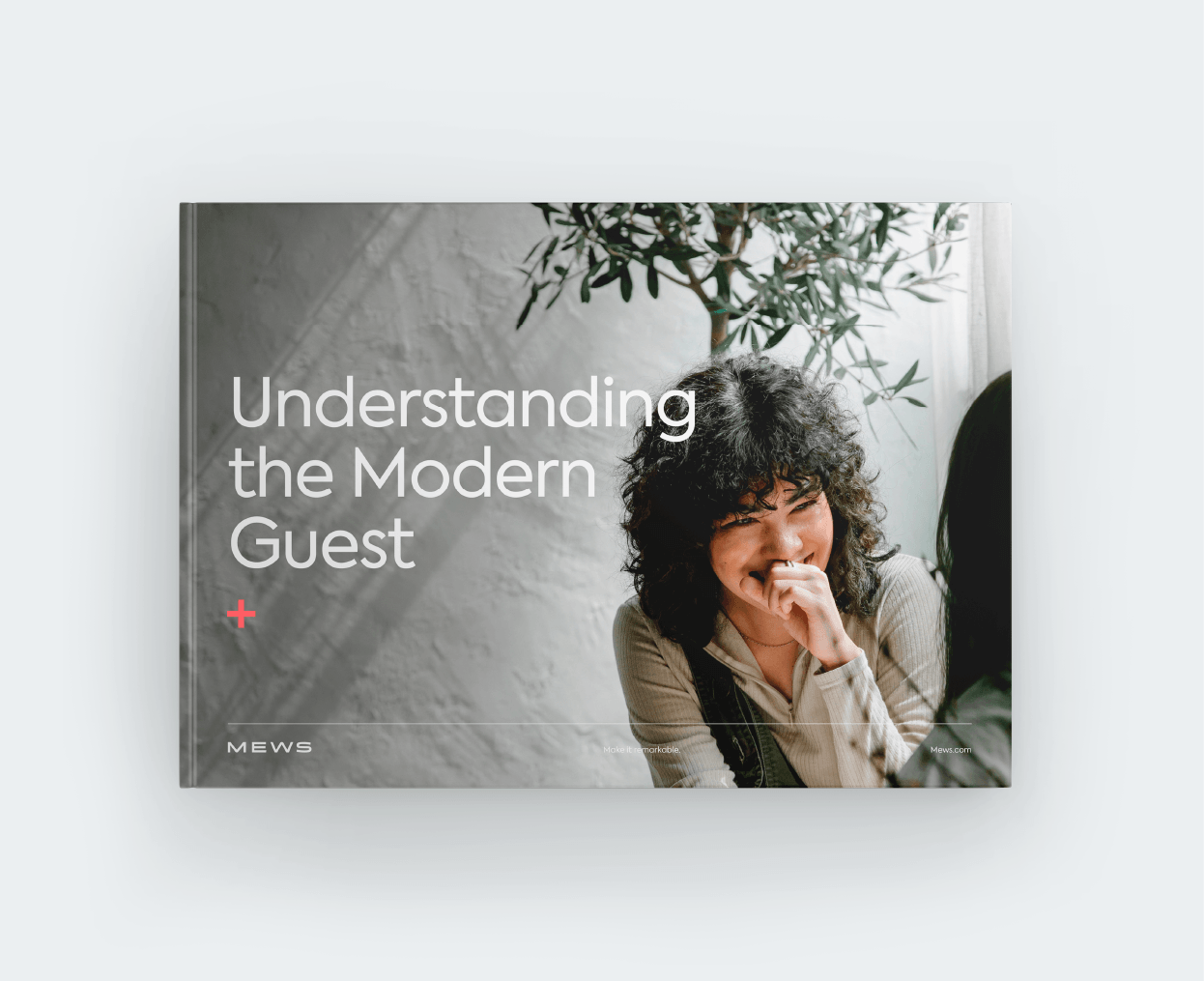Your hotel's marketing funnel plays a crucial role in driving long-term success. Every marketing activity you run - from digital ads to referral campaigns - should be focused on one goal: turning guests into loyal advocates. The tactics you use will vary depending on which stage of the funnel they're in, but the aim is always the same: build lasting relationships that drive repeat business and new bookings.
Before you can start optimizing your funnel, you need to understand what it is, why it matters, and how each stage works. Better campaigns mean stronger results - and stronger results mean more revenue.
Table of contents
What is a marketing funnel for hotels?
A hotel marketing funnel is a simple way to map out the key stages of a guest's booking journey - from discovery through to loyalty and advocacy. Optimizing each stage means you're more likely to attract the right kind of guest - the kind that books more than once and recommends you to others.

Why does the marketing funnel matter?
Understanding and optimizing your hotel's marketing funnel has a direct impact on performance. It helps you target the right guests, streamline your campaigns, and ultimately boost bookings. Here's why it matters.
A clear structure
Without a defined funnel, marketing efforts can feel scattered. A structured approach gives your team direction and helps them understand the stages each potential guest goes through - from the moment they discover your hotel to becoming a loyal advocate. It creates clarity around your marketing objectives and makes it easier to spot areas for improvement.
Make targeted marketing campaigns
When you know which stage a guest is in, you can tailor your marketing accordingly. That means sending the right message at the right time - whether it's a brand awareness ad, a promotional email, or a loyalty reward. Personalized content tends to perform better, helping you cut through the noise and connect with the people most likely to book.
Better conversion rates
If your funnel is working effectively, you'll start to see improvements in conversion. That's because each stage is designed to guide the guest closer to booking. Whether it's improving your website experience, utilizing the right hotel PMS for general managers or offering incentives at the right time, a thoughtful funnel helps remove friction and makes the path to purchase feel seamless.
Smarter decisions
One of the biggest benefits of a defined funnel is that it helps you measure what's working - and what's not. You can analyze performance at each stage, spot drop-off points, and adjust your strategy based on real data. That leads to smarter marketing decisions, better resource allocation, and stronger long-term results.
The stages of a hotel marketing funnel - and how to optimize them
Depending on the funnel model you use, there can be anywhere from four to six stages. It starts at the top with awareness, where you attract the attention of potential guests. From there, they move into the consideration phase, where they weigh up their options - and ideally, start thinking seriously about staying with you.
Next comes conversion, when a reservation is made. Then loyalty, when a guest has stayed with you and starts to build a relationship with your brand. To keep them coming back, you need to regularly engage them with personalized communication, exclusive offers, and standout service.
Some funnel models also include activation, which is where you encourage guests to engage more deeply - whether that's through upsells, newsletter sign-ups, or joining a loyalty program. Then there's advocacy: when guests start recommending your hotel to friends, family, and colleagues. It's one of the most powerful (and cost-effective) forms of marketing because it brings in new business without additional spend.
Awareness
In the awareness stage, your goal is simple: let people know you exist. This can be done through a combination of SEO, social media, content marketing, and paid campaigns. Whether it's inspirational travel content or destination-led reels, your messaging should be focused on grabbing attention and introducing your brand.
Optimizing for search is particularly important here. That means choosing the right keywords and using them strategically across your site and content. The more visible you are to the right audience, the more likely you are to draw them into the funnel.
Consideration
Now that potential guests know you exist, they're actively comparing their options. They might browse your website, read online reviews, or check your social channels. This is the moment to show off what makes your property stand out.
To win at this stage, reputation management is essential. Make sure your online reviews reflect the kind of experience you deliver - and respond to them where possible. You could also highlight unique amenities, experiences, or introductory offers for first-time guests to help nudge them closer to booking
Conversion
This is the moment of truth: when a guest decides to book. A smooth booking experience is key. That means having a direct booking engine that's fast, intuitive, and optimized for mobile. You can also increase conversion rates by offering flexible rates, special deals, or added perks for direct bookings.
Customer service plays a key role here, too. Whether it's answering pre-arrival questions or providing reassurance about cancellation policies, responsive support can make all the difference.

Loyalty
Once a guest has stayed with you, the focus shifts to retention. The aim is to turn one-time guests into loyal fans who return again and again.
To encourage loyalty, you can implement tiered programs, send personalized post-stay emails, and offer exclusive deals to returning guests. Most importantly, deliver a guest experience worth coming back for - one that's seamless, personal, and memorable from start to finish.
Activation
Activation is when a guest moves from passive interest to active engagement. It's the stage where a lead becomes a prospect - someone who's genuinely considering your hotel and starting to interact with your brand more intentionally.
This might include creating an account, downloading your app, or revisiting your booking page multiple times. You can support activation by offering limited-time discounts, personalized incentives, or reminders that make it easier for them to take the next step.
Advocacy
When loyalty turns into advocacy, that's when the magic happens. Guests who recommend your hotel to others are not only helping you grow your audience, they're also building credibility on your behalf.
Encourage advocacy with referral incentives, loyalty bonuses, or even something as simple as social media engagement. A guest tagging your hotel in their Instagram story or writing a glowing review can carry just as much weight as a paid campaign - and sometimes more.
Conclusion
A well-built marketing funnel doesn't just boost bookings - it helps you attract the right guests, optimize your campaigns, and drive long-term revenue. By understanding each stage and fine-tuning it over time, you can create better guest experiences, stronger brand loyalty, and a higher-performing marketing engine. The funnel isn't just a model - it's a foundation for your hotel's success.
Want to better understand your guests and optimize your marketing funnel?
Download our guide "Understanding the Modern Guest"


2026 Hospitality Industry Outlook
Download now
Table of contents
Hospitality hot takes straight to your inbox



.webp)
